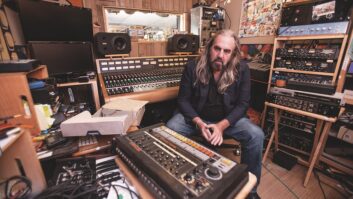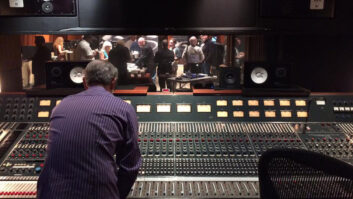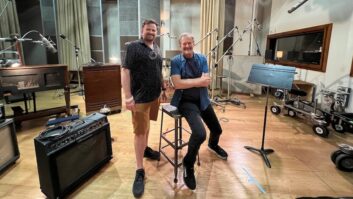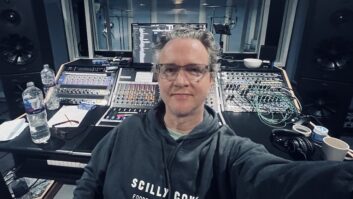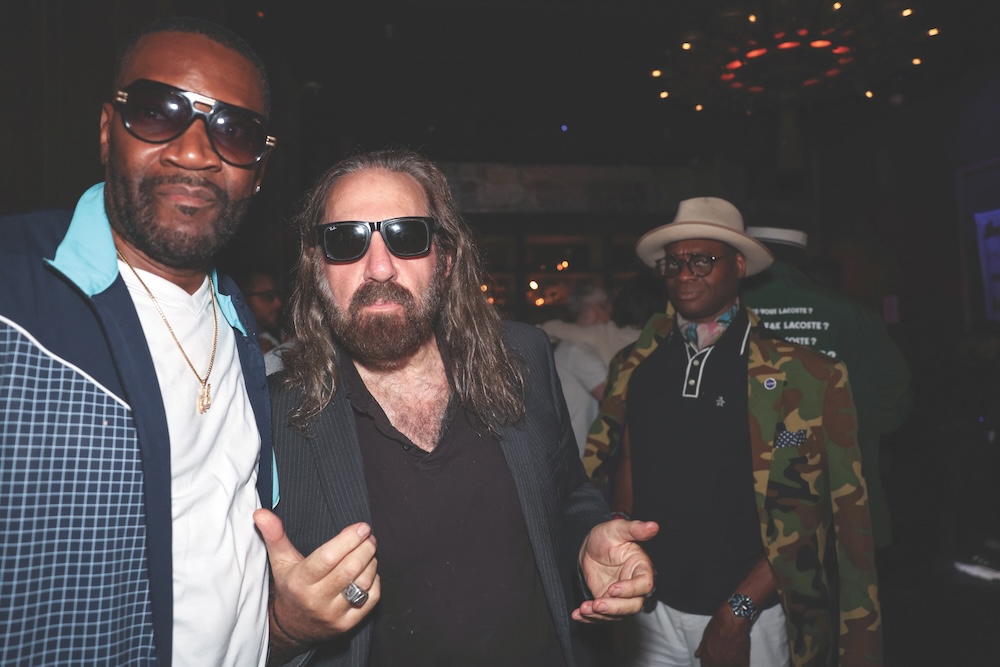
Arthur Baker’s rise to the top was incredible – don’t pass up Part 1!
BROOKLYN FUNK ESSENTIALS
In 1993, in a hodgepodge of unused recordings of different musicians, Arthur Baker found a bit of material played by saxophonist Maceo Parker. He felt it would be a good fit for a jazz project he was working on with songwriter, producer and musician Lati Kronlund. That was the seed for Brooklyn Funk Essentials, a diverse collective of jazz, funk and hip hop musicians and vocalists.
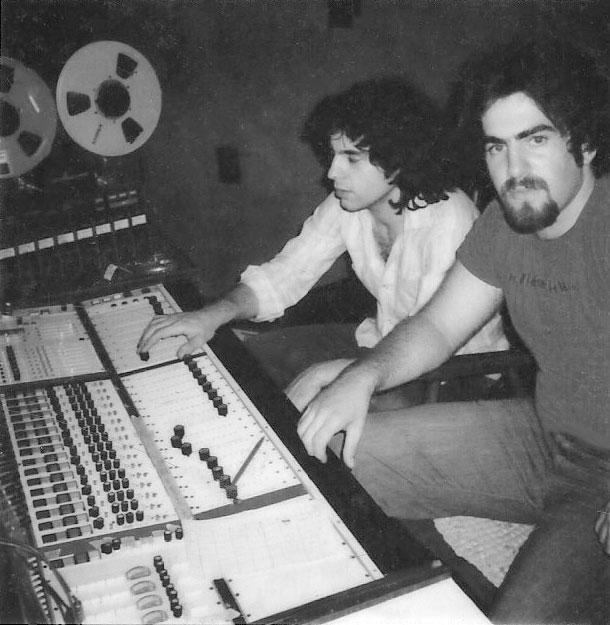
“I was still in my drug phase,” says Baker of the original session with Parker. “I played him a track that was nine minutes long that my drummer Keith [LeBlanc] had done in the stairwell. We got that great drum sound. I had to explain to Maceo what I was looking for. We did a couple of tracks. It wasn’t an easy session. But it was fun for me to be in with Maceo because I was such a fan. I remember thinking, ‘I wish I had better stuff for him to play on.’ I felt like it hadn’t been used to its best, so we used that on ‘Blow Your Brains Out.’”
Of BFE’s origins, Baker says, “It started out as programming and samples of live playing, then Lati put a band together and we started overdubbing. Once they started playing live, it became a whole other thing. They played a lot of gigs, so they were playing the songs really well. The album came out in the UK on Dorado, but when we put the album out in America, we rerecorded a lot of the stuff live. If it had remained programmed samples, you wouldn’t be hearing about the band now, 30 years later.”
To mark the 30-year anniversary of Brooklyn Funk Essentials’ debut album, Cool and Steady and Easy, there are reimagined versions of two of their classic songs, “Blow Your Brains Out” and “Brooklyn Recycles.” Kronlund was again in the producer’s seat on the former, with UK singer/ songwriter Alison Limerick on vocals.
Steadfast in his affinity for live performance, Baker says, “There are so many acts that started as samples that could have done it live, but didn’t. What’s special about Brooklyn Funk Essentials is that Lati actually did that. He’s super-anal, super-specific. He had perseverance. He’s the exact opposite of me.”
KEEPING IT LIVE
For the last decade, Baker’s productions have started in a Wi-Fi-less laptop with a screen that’s falling apart running Logic 9. He has a plethora of plug-ins, including the Waves suite, and he works on headphones. “The control I have over my own creation is more than I’ve ever had,” he says. “Once I got acquainted with programming and sequencing, I was able to go from the club to home and start doing a track. Five or six years ago, when I was in Ibiza, I would go out every night, and during the day I would write a track from the vibe that had inspired me the night before.”
While Baker’s ideas start in the box as a solitary endeavor, he continues to work with live musicians and a select few engineers for mixing. He draws from Miami’s wealth of music talent, including keyboardist Gene Perez and DJ Le Spam and his disco funk jazz band, The Spam All-Stars.
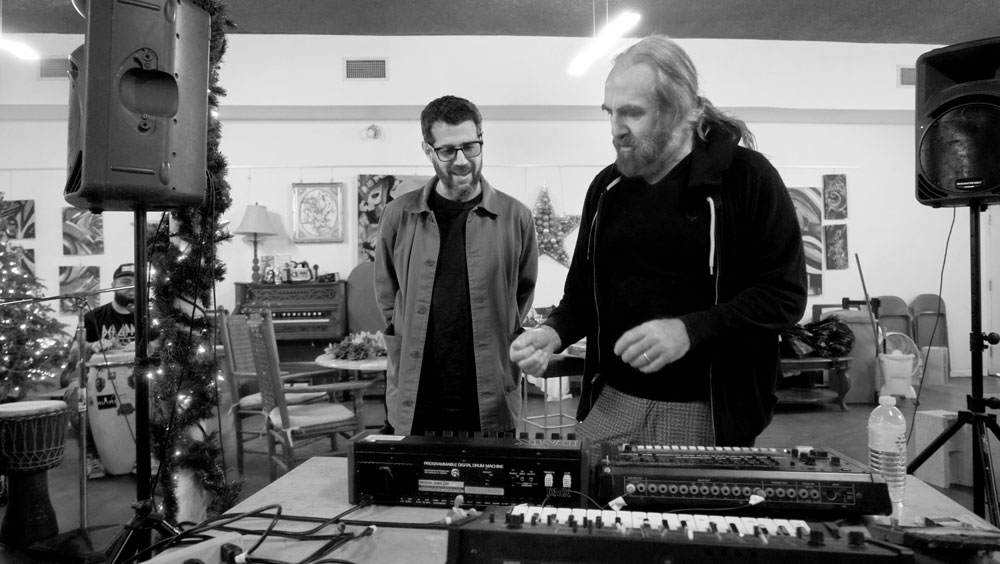
“[Perez] has a great studio, [DJ Le Spam] has all the synthesizers and a Trident board where I record live,” says Baker. “The younger guys love having analog equipment, which is good, because I kept a few things, but I don’t use them at all with how I’m set up. It’s easier for me to create this way. It’s about how quickly you can put an idea down before it’s gone.”
In the last year, Baker has done two key remixes—“California” for French superstar Myléne Farmer and “The Trench Coat Museum” for UK up-and-comers Yard Act. Farmer only provided Baker with an a cappella, around which he built a new track in the box, then had Perez play on it; MSTRKRFT’s Al-P did the final mix. Yard Act sent Baker all the parts, from which he chopped bits of the vocal, then had Perez add new keyboard parts.
“It’s about getting songs that inspire you,” he notes. “Going back to live performances makes a difference. Most of my remixes have a live element to them. Adding one or two human elements on something, you can really feel the difference.”
Coincidentally, it was Tom Moulton, informally known as the creator of the remix in the disco era, who released some of Baker’s earliest recordings, albeit in a roundabout way. Baker recorded a Philly soul album with live musicians, funded by himself, which caught the ear of Moulton’s brother. They bought the music from Baker, rerecorded it and released it as TJM on Casablanca Records in the late ’70s.
Much of Baker’s taste, which was molded by the early ’70s radio DJs on Boston’s WBCN and WILD, was reflected on what became TJM. The music Baker heard on those stations ran the gamut of genres, from rock to soul, jazz, funk, vocal groups and everything in between, playing varying styles back-to-back.
“You were able to see the connection between Cream and Otis Redding, the Rolling Stones and Aretha Franklin,” Baker recalls. “Hearing everything gave me my education. That was lifechanging for me.”
Baker follows that ethos on his weekly Sirius XM radio show, Baker’s Revenge, broadcast on Studio 54 Radio. He shares his influences, his own music, material from his vaults and current sounds that catch his ear. “It’s a lot of my own stuff,” Baker says. “I do a thing called ‘Sleeper of the Week,’ which is something of mine that came out that no one ever heard. But I also play Led Zeppelin. My friends from Boston say it sounds like BCN back in the day.”
Baker’s Revenge is a great platform for the producer and songwriter who began his career as a club DJ and insists that he wasn’t good at it, at least the mixing part, because he never practiced. But he knew how to pick songs, and he always had a DJ’s mindset, understanding how a track could work on a dancefloor.
This past summer, Baker had a string of club dates, where, true to form, he tested out a lot of his new material. “When I DJ now, I only play my own music, and I play a lot of things that no one’s ever heard. If you can get people to dance on things that aren’t even finished and that they don’t know, you know it’s cool.”
